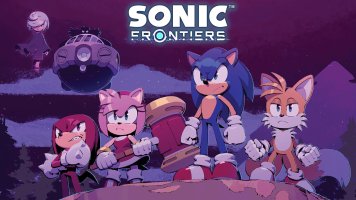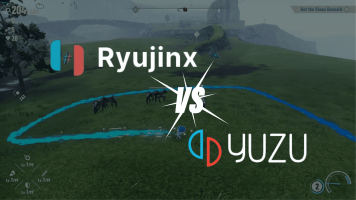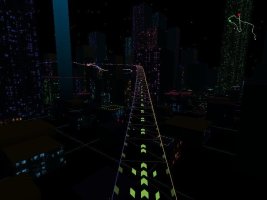In an unexpected twist that's sending ripples through the gaming community, an upcoming indie game is set to transform the iconic PlayStation 2 operating system into a chilling survival horror experience. This innovative concept not only pays homage to a beloved console but also pushes the boundaries of game design, merging nostalgia with fear in a way that's capturing the imagination of gamers worldwide.
The Legacy of the PlayStation 2 OS
The PlayStation 2 (PS2) wasn't just a gaming console; it was a cultural phenomenon that defined an era. Launched in 2000, it became the best-selling video game console of all time, with over 155 million units sold worldwide. A significant part of its charm was its distinctive operating system.The PS2's OS, with its ethereal blue swirls, haunting ambient sounds, and mysterious floating blocks, created an atmosphere of otherworldly calm. It was more than just a menu; it was a gateway to countless adventures, a liminal space between reality and the virtual worlds awaiting players. The OS's design was minimalist yet mesmerizing, leaving an indelible mark on the memories of millions of gamers.
Reimagining a Classic: The Game Concept
Enter "System Shock: PS2 Edition" (working title), an indie game that ingeniously transforms this nostalgic interface into a survival horror playground. The game's premise is both simple and terrifying: What if the PS2's OS was more than just a menu? What if those ethereal environments held dark secrets and malevolent entities?In this reimagining, players find themselves trapped within the OS, which has become a nightmarish labyrinth. The once-soothing blue environment now pulsates with an ominous red glow. The floating blocks that represented save files and game data have become corrupted, morphing into monstrous entities that stalk the player through the twisted digital landscape.
Atmosphere: A Visual and Auditory Nightmare
The developers have gone to great lengths to maintain the core visual identity of the PS2 OS while infusing it with elements of horror. The familiar blue backdrop now shifts and warps, creating an unsettling sense of instability. Glitches and visual artifacts pepper the environment, blurring the line between system error and intentional design.The audio design is particularly noteworthy. The original ambient sounds have been distorted and layered with unsettling whispers, distant screams, and the occasional system error beep that will make players jump. The iconic PS2 startup sound has been reimagined as a terrifying leitmotif that signals the approach of danger.
Survival in the System: Gameplay Mechanics
"System Shock: PS2 Edition" introduces several innovative gameplay mechanics that leverage its unique setting:- Data Corruption: Players must navigate through the OS, repairing corrupted data to progress. However, each repair risks alerting the entities that lurk within the system.
- Memory Management: Similar to managing inventory in traditional survival horror games, players must manage the PS2's memory. Overloading the system's memory can lead to glitches that either help or hinder the player.
- Fragmentation Evasion: Instead of traditional combat, players must outsmart and evade the fragmented entities by manipulating the environment, creating diversions, or temporarily freezing parts of the system.
- Multi-Layered Exploration: The game takes place across multiple "layers" of the OS, from the user interface to deep system files, each presenting unique challenges and horrors.
- Nostalgia as a Weapon: Players can collect and use "Nostalgia Fragments" - bits of classic PS2 games and media - to temporarily revert areas to their non-corrupted state, providing safe havens or revealing hidden paths.
Community Reception: A Viral Sensation
Since its announcement, "System Shock: PS2 Edition" has become a viral sensation in the gaming community. The reveal trailer, which showcased the game's unique aesthetic and atmosphere, garnered millions of views within days of its release.Reactions have been overwhelmingly positive, with many praising the game's innovative concept and attention to detail. Fans of the PS2 era are particularly enthused, with countless comments expressing a mix of nostalgia and anticipation. The gaming press has also taken notice, with several major outlets featuring previews and interviews with the developers.
However, some skeptics question whether the concept can sustain a full game experience. The developers have responded by releasing a playable demo, which has further fueled excitement and addressed many concerns about gameplay depth.
Conclusion: A New Chapter in Gaming History
"System Shock: PS2 Edition" represents more than just an innovative indie game; it's a bold statement about the power of nostalgia and the endless possibilities of game design. By reimagining a beloved interface as a survival horror experience, the developers have created a meta-commentary on our relationship with technology and our gaming past.The game's impact extends beyond its immediate audience. It has sparked discussions about the potential for reimagining other classic gaming interfaces and has inspired a wave of fan art and concept pitches for similar ideas.
As we await the full release of "System Shock: PS2 Edition," one thing is clear: the lines between nostalgia and horror, between interface and gameworld, have been irrevocably blurred. This indie game isn't just continuing the legacy of the PlayStation 2; it's writing a new chapter in gaming history, proving that even in the world of AAA titles and cutting-edge graphics, there's still room for innovative, thought-provoking experiences that challenge our perceptions of what a game can be.
The PlayStation 2 might be a relic of gaming past, but in the hands of creative developers, its spirit lives on – albeit in a form that might just keep us up at night, listening for the echo of that once-comforting startup sound, now a harbinger of digital terror.

Random: PS2's Iconic Operating System Becomes Survival Horror in Upcoming Indie
Please insert disc






